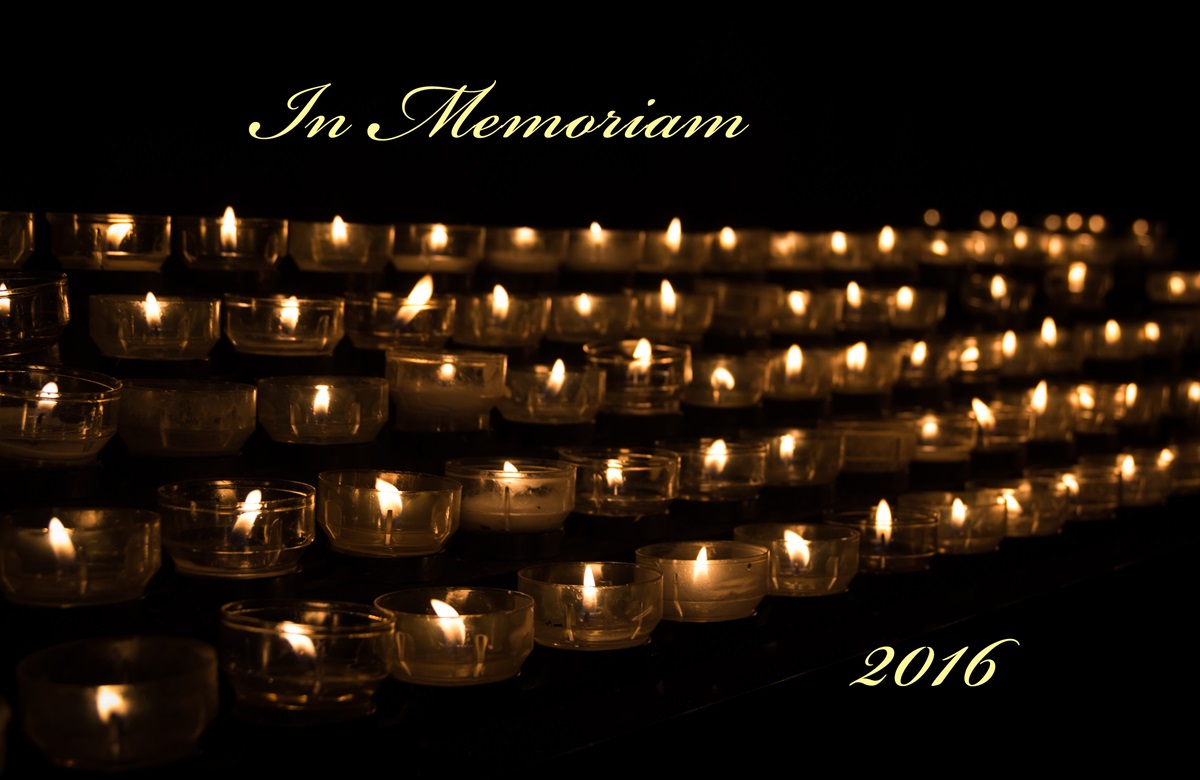United Methodists this past year marked the passing of a Bible study innovator, a birthday ambassador and the Pulitzer-winning author of a beloved novel.
Here are 21 remembrances, listed in order of date of death.
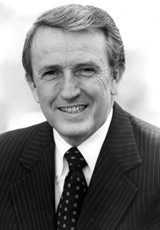
Dale Bumpers. Photo courtesy of U.S. Congress, Wikimedia Commons
Dale Bumpers
Dale Bumpers, former Arkansas governor and U.S. senator, was a pioneer in integrating schools and his own church. The lifelong United Methodist died Jan. 1 at the age of 90 in Little Rock, Arkansas.
Bumpers was the sole lawyer in his hometown of Charleston, Arkansas when the Supreme Court’s landmark 1954 ruling in Brown v. Board of Education overturned “separate but equal” schooling. Bumpers persuaded the local district to comply immediately, making Charleston the first town in the former Confederacy to desegregate its schools. A few years later, he played a similar role in integrating First United Methodist Church, where he taught Sunday school and led the choir.
Bumpers later recounted in an oral history that a number of African-American families came to the first Sunday after the church’s vote to desegregate. “Everybody felt so proud,” he said. “They were so proud of themselves that we had integrated that church, which is the exemplification of Christianity.”
The Rev. Mike Mattox was the senior pastor of First United Methodist in Little Rock when Bumpers and his wife Betty joined after years in Washington. “He was active; he was always attentive to the sermon and so supportive,” said Mattox, now senior pastor of First United Methodist in Rogers, Arkansas. “He was a statesman and a church man.”
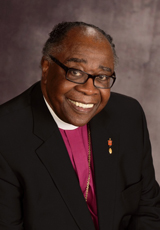
Bishop William Morris, photo courtesy of the Council of Bishops
Bishop William “Bill” Morris
Retired United Methodist Bishop William Wesley “Bill” Morris ─ the first African American to lead Alabama-West Florida Episcopal Area ─ died Jan. 14 at 78. He suffered a massive heart attack at his home near Nashville, Tennessee.
Morris led the Alabama-West Florida Episcopal Area from 1992 to 2000. In 1998, he was among the clergy officiating at the funeral of George Wallace, who had by then often apologized for defending segregation as Alabama’s governor.
He also oversaw the Nashville Episcopal Area, comprising the Tennessee and Memphis conferences. Even after retiring from the episcopacy in 2008, he continued providing leadership, serving as the interim top executive of United Methodist Men for more than a year. He also taught Sunday school at Clark Memorial United Methodist Church in Nashville.
“He was a mentor, adviser and friend,” retired Bishop Marcus Matthews said. “I will always remember hearing the sound of his deep bass voice at Council of Bishops meetings. He lived ‘the Methodist way.’”
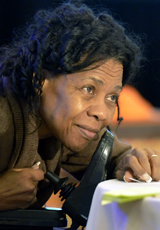
Denise Johnson Stovall. Photo by Paul Jeffrey, kairosphotos.com
Denise Johnson Stovall
Denise Johnson Stovall, a longtime writer about The United Methodist Church, died Jan. 19 at age 61 after a long battle with multiple sclerosis.
Stovall, wife of the Rev. Charles Stovall, had considerable experience in secular media before joining the staff of The United Methodist Reporter, where she became the first black associate editor. She wrote for United Methodist News Service and United Methodist Women, and co-wrote church-related books. She also worked to help children set their sights on attending college.
“She was loving to everyone, not just to her children, but to everyone’s children,” her daughter Deanna Stovall told the Dallas Morning News. “She was the reason a lot of people got their first scholarships to college. She wrote tons of recommendations to people.”
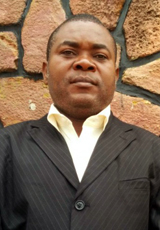
The Rev. Boniface Kabongo. Photo courtesy of North Katanga Episcopal Area, Congo Central Conference
The Rev. Boniface Kabongo
The Rev. Boniface Kabongo, legal representative and assistant to the North Katanga Area bishop in the Democratic Republic of the Congo, died unexpectedly Jan. 21. He was 50.
Kabongo served frequently as liaison to partners of the North Katanga Area. These partners include the West Ohio, Greater New Jersey, Arkansas and Indiana conferences, various general agencies and the congregations Church of the Resurrection in Leawood, Kansas, and Highland Park United Methodist Church in Dallas.
“The Rev. Dr. Boniface Kabongo was a right, correct, respectable Christian man,” said his friend the Rev. Betty Kazadi Musau. “He knew the church and was the right person in the conference to lead the episcopacy into its future.”
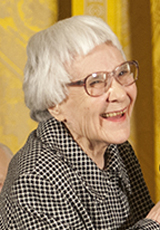
Harper Lee. White House photo by Eric Draper, courtesy of Wikimedia Commons
Harper Lee
Harper Lee used the words “Methodist” and “John Wesley” in the first pages of her classic novel “To Kill a Mockingbird,” and Methodism figured in her life as well as her fiction.
Lee’s death on Feb. 19, at 89, in her hometown of Monroeville, Alabama, brought expressions of sadness from fellow United Methodists. There was also deep gratitude for her work, particularly “To Kill a Mockingbird,” the Pulitzer Prize-winning tale of race relations in the Deep South, published in 1960.
“Imagine the strength of character, the undaunted courage, the ethical heart that a young 30-something woman from south Alabama would have to have to write a book about racial injustice before the Civil Rights Act had even passed,” said Dawn Wiggins Hare, top executive of the United Methodist Commission on the Status and Role of Women, who knew Lee. “It took clarity of vision to see injustice in what was otherwise accepted as the norm.”
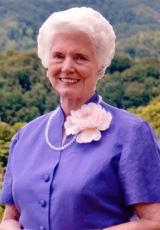
Family photo of Julia Kitchens Wilke, courtesy of Great Plains Conference
Julia Kitchens Wilke
Julia Kitchens Wilke was a Bible study innovator, who helped introduce Scripture to millions. She and her husband, Bishop Richard Wilke, worked together to create the acclaimed Disciple Bible Study program. The two also co-founded the Institute for Discipleship that bears their name at United Methodist-related Southwestern College in Winfield, Kansas.
She died at 83 on Feb. 25 just as Disciple Bible Study was celebrating its 30th year.
“She wanted people to feel loved when they came to church, just as she wanted them to feel loved by God,” said her son, Steve Wilke, an executive at Southwestern College and executive director of the Richard and Julia Wilke Institute for Discipleship at the college.
“She was one those who thought it was OK if the church got a little bit messy if kids were there, if it got a little loud because kids were there. She would much rather the church be filled with folks wanting to be there than be a quiet museum.”
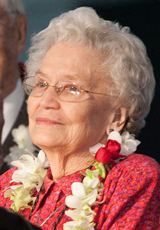
Eunice Jones Mathews. Photo by Mike DuBose, UMNS
Eunice Jones Mathews
Eunice Jones Mathews was “wife, mother, author and noble soul whose life was ceaselessly bent toward the love of God and the care of others,” proclaims a plaque at Metropolitan Memorial United Methodist Church in Washington. She died Feb. 27 at 101.
She was the wife of the late United Methodist Bishop James K. Mathews and the only daughter of E. Stanley and Mabel Lossing Jones, renowned Methodist missionaries. However, she left her own mark on The United Methodist Church. Among her distinctions, she wrote “Drug Abuse: Summons to Community Action;” and co-wrote with her father, “The Divine Yes.” She had a professorship established in her and her husband’s name at Wesley Theological Seminary in Washington. She also was an early champion of United Methodist Africa University.
“She was wonderful, a joy and a delight to be with and she was so insightful about everything,” said James Salley, a top executive with the university in Mutare, Zimbabwe. “She lived a grand life — she was a daughter of the universe.”
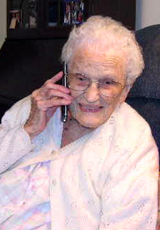
Jean Christy. Photo by Kandy Barnard
Jean Christy
Jean Christy showed that you are never too old to start a new ministry. At about the age of 105, she volunteered to be the “birthday ambassador” for Andrews (North Carolina) United Methodist Church. She called regular and not-so-regular worshippers on the anniversary of their birth.
She died May 28 at the age of 111, according to records in her family Bible. She was a longtime Sunday school teacher as well as high school English teacher. Her faithfulness stood out even in a family that included a church treasurer, a district superintendent, three ordained elders, a diaconal minister and a full-time local pastor.
“In our family, a lot of us are preachers, but we will never have the kind of influence that Aunt Jean had,” said her great-nephew, the Rev. David Christy, senior pastor of First United Methodist Church of Gastonia, North Carolina.
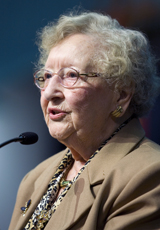
Louise Baird Short. Photo by Mike DuBose, UMNS
Louise Baird Short
Louise Baird Short, the widow of Bishop Roy H. Short, had the ear of bishops and General Conference delegates. In fact, until this year, she had attended each General Conference going back to the unification of the Methodist Church in 1939.
She died June 24 in Nashville, Tennessee, at the age 110. At General Conference 2012 in Tampa, Florida, delegates greeted her with a standing ovation. Altogether, she attended 18 of the denomination’s top lawmaking assemblies.
“She loved the Lord, and loved her church because of her love of the Lord,” said her son, the Rev. Riley Short, a longtime pastor in Florida. “She always thought the business of the church was her business.”
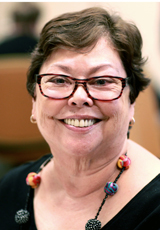
Kathleen Thomas-Sano. Photo by Kathleen Barry, United Methodist Communications
Kathleen Thomas-Sano
Kathleen Ann Thomas-Sano, the wife of retired United Methodist Bishop Roy Sano, was an advocate for those marginalized in church life. She died July 6 after an extended illness at the age of 70.
Thomas-Sano, a native of Hawaii, served numerous positions within the church. These included staff positions with the Board of Global Ministries, the California-Nevada Conference and the Commission on Religion and Race. She also was a former executive director of the National Federation of Asian American United Methodists, and represented that group on the Connectional Table, a denomination-wide coordinating body.
“She was a tireless advocate for the rights of racial ethnic communities and for justice for the oppressed,” said Bishop Minerva Carcaño, who now leads the California-Nevada Conference. “Kathy was a joyful disciple of Jesus Christ and we will miss her.”
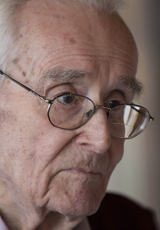
Bishop Franz Schaefer. Photo courtesy of Bishop Patrick Streiff's office.
Bishop Franz Werner Schäfer
Bishop Franz Werner Schäfer throughout his ministry served as a bridge between countries, ideologies and different streams of John Wesley’s movement.
The retired bishop, who led the church in Central and Southern Europe during the height of the Cold War from 1966 to 1989, died July 14 in Zurich. He was 95.
His area included 10 diverse countries: Switzerland, France, Belgium, Austria (which belonged to democratic Western Europe) and Poland, Hungary, Czechoslovakia, Yugoslavia, Bulgaria (which belonged to Communist Eastern Europe). His area also included missions in North Africa.
“He approached people with honesty, respect and appreciation,” said Bishop Patrick Streiff, who today leads the same episcopal area. “The result was that he was treated as a credible and trustworthy partner despite the many linguistic, societal, ideological and religious differences.”
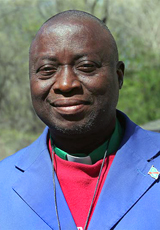
Onema Ombaku Lamoto. Photo by Chris Tricomi, Global Ministries
Onema Ombaku Lamoto
Onema Ombaku Lamoto, United Methodist missionary, died July 29 at age 66 in Jos, Nigeria. He was being treated at a hospital for a kidney disorder, and his immediate cause of death was listed as a stroke.
Known as "Ombaku," the native of the Democratic Republic of Congo, was an expert in mission finance. He had previously served in that area for the United Methodist Board of Global Ministries in Sierra Leone and his home country. In 2010, he moved to Nigeria where he worked with church leaders, personnel, projects, and institutions assuring that mission funds were properly disbursed.
“Mr. Ombaku loved his work and did it with enthusiasm, competence, and a sense of commitment to God’s mission,” said Thomas Kemper, chief executive of the General Board of Global Ministries. “He was a man of joy, faith and constancy.”
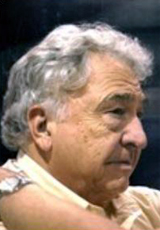
George Bass, photo courtesy of The Tennessean
George Bass
Thousands of youth from across the United States have enjoyed a “mountaintop” experience in their spiritual development thanks to lifelong United Methodist George Bass.
Bass was the founder and longtime director of Mountain T.O.P. (Tennessee Outreach Project), which still draws church youth groups and families to the Cumberland Mountains to do home repairs, worship and grow in faith together. He died Aug. 25 at the age of 80.
“He shaped a lot of people’s lives,” said the Rev. John Hill, senior pastor of Bass’ congregation, Blakemore United Methodist Church in Nashville, Tennessee. “A lot of my friends in ministry felt their call or got their feet wet in ministry through Mountain T.O.P. His legacy continues to live on in their lives and their ministry.”
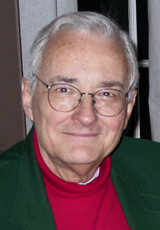
The Rev. Hoyt Hickman, photo courtesy of Peter Hickman
The Rev. Hoyt Hickman
If you regularly attend a United Methodist church, you’re probably under the influence of the Rev. Hoyt Hickman. For starters, he helped transform The United Methodist Hymnal, integrating psalms and prayers and prominently offering liturgy for a range of services.
He died Sept. 5, at age 89, at his home in Los Altos, California. United Methodists ministers who are specialists in the field of worship regarded Hickman as a mentor.
“Hoyt Hickman was the first dean of all United Methodist liturgists,” said the Rev. Andy Langford in a tribute column. “Hoyt introduced The United Methodist Church to the latest and best of all ecumenical worship resources. He literally changed how United Methodists worship.”
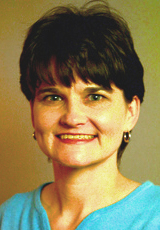
Becky Dodson Louter, photo courtesy of United Methodist Women
Becky Dodson Louter
Doris Rebecca “Becky” Dodson Louter, a tireless advocate for United Methodist lay ministry, died Sept. 16 at age 46 of breast cancer.
Louter led the denomination’s Deaconess and Home Missioner Office, which administers the lay order dedicated to vocations that alleviate suffering. She began leading the deaconess office in 2003, and under her leadership, this lay community grew. In 2004, she was consecrated a deaconess herself, and General Conference — the denomination’s top lawmaking assembly — added laymen to the order as home missioners.
“I am profoundly grateful for Becky’s life, for her commitment to following Jesus and for her leadership,” said Harriett Jane Olson, chief executive officer of United Methodist Women, which oversees the lay order. “She was a model of committed lay leadership focused on love, justice and service.”
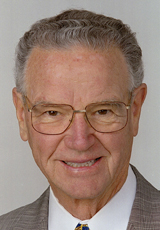
Bishop Emerson S. Colaw, photo by Mike DuBose, UMNS
Bishop Emerson S. Colaw
Bishop Emerson S. Colaw encouraged pastors to take risks but keep their eyes on Jesus. He once preached a sermon titled, “If You Want to Walk on Water, You’ve Got to Get out of the Boat.”
Colaw, who led the Minnesota Conference from 1980 to 1988, died Oct. 11 at age 94 in Ohio. After retiring as bishop, Colaw served as professor of homiletics and Christian ministry at United Methodist United Theological Seminary in Dayton, Ohio and later as its acting president. For some time, he spent winters in Florida and served as bishop in residence at North Naples United Methodist Church.
United Methodists remembered him as a strong preacher and a compassionate leader who loved the church and had a heart for clergy. “He exemplifies and lives out everything that is right about the church,” said the Rev. Doug Johns, co-pastor of Hyde Park Community United Methodist Church, the Cincinnati congregation that Colaw attended in his later years.
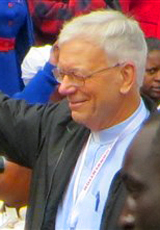
The Rev. A. Mark Conard, photo courtesy of Great Plains Conference
The Rev. A. Mark Conard
The Rev. A. Mark Conard’s death on Oct. 18 at age 68 was mourned by United Methodists on two continents.
Conard — whose 42-year ministry career included service as pastor and district superintendent — played a key role in establishing a partnership between United Methodists in his home Great Plains Conference and Zimbabwe. He embraced the formed connections through a movement called “Chabadza,” a Shona word meaning “come alongside.”
“He enjoyed being a part of something that was so exciting,” said the Rev. Kalaba Chali, Mercy and Justice coordinator for Great Plains Conference. “That was because of his ability to work with people of different theological perspectives. He was loved by liberals in the church; he was loved by conservatives.”
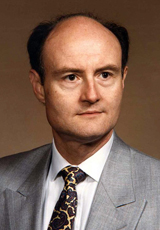
The Rev. Laurence Hull Stookey, photo courtesy of Wesley Theological Seminary
The Rev. Laurence Hull Stookey
The Rev. Laurence Hull Stookey — pastor, professor and prolific writer — helped change how United Methodists celebrate the Christian year and practice the sacraments. In fact, if you have recently attended a baptism at a United Methodist church, you have likely heard Stookey’s words.
He died Oct. 16 in Gaithersburg, Maryland, after a long illness with Lewy Body dementia. He was 79. Stookey took part in revising the United Methodist Hymnal, writing the 1992 United Methodist Book of Worship and collaborating on the Handbook of the Christian Year. The longtime professor at United Methodist Wesley Theological Seminary also wrote the book on public prayer still used in seminaries today.
“He was a man who brought enormous cheerfulness to how we craft worship and a very, very high sense on how that reflects on the honor we want to give God,” said the Rev. Charles Parker, a former student and senior pastor of Metropolitan Memorial United Methodist Church in Washington.
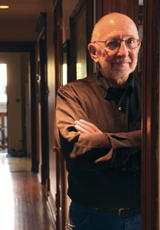
The Rev. Greg Dell, photo by Lloyd DeGrane, courtesy of Illinois Wesleyan University Magazine
The Rev. Greg Dell
The Rev. Gregory Dell, whose church trial made national headlines, died Oct. 30 after a long struggle with Parkinson’s disease. He was 70.
Dell was pastor of Broadway United Methodist Church in Chicago in 1999 when he underwent a church trial for presiding at the union of two men. He was willing to lose his job for what he saw as a matter of justice and inclusion. A jury of fellow United Methodist clergy voted to suspend Dell indefinitely from his job for violating church law, but on appeal his suspension was limited to a year.
“Our church attracted a lot of what I describe as ‘wounded birds,’” Jim Bennett, a longtime Broadway member told the Chicago Tribune, “people who had been kicked out of their churches and their families. Every denomination was represented. He felt a responsibility to help them restore their faith.”
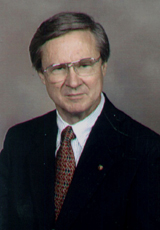
The Rev. Joseph Rice Hale, photo courtesy of World Methodist Council
The Rev. Joseph Rice Hale
The Rev. Joseph Rice Hale, a committed Methodist, used Houdini-like magic tricks to attract a crowd; counted Pope John Paul II as a friend; publicly recognized worldwide peacemakers and helped unite the followers of John Wesley.
Hale, 81, led the World Methodist Council from 1976 to 2001. He died Nov. 14 at Silver Bluff Village near Canton, North Carolina, after a long battle with Alzheimer’s and Parkinson’s diseases.
“Joe Hale was one of the most gracious persons you would ever meet, with a great passion for work and ministry,” said the Rev. H. Eddie Fox, who worked with Hale for many years. “He took the World Methodist Council and moved it from a committee to a movement.”
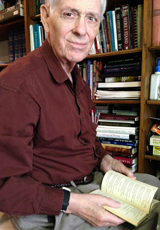
The Rev. Thomas C. Oden, photo courtesy of Laura Oden
The Rev. Thomas C. Oden
Prodded by a Jewish colleague, the United Methodist scholar the Rev. Thomas C. Oden made a turn in midlife, changing his focus from modern theology to the ancient Christian writings.
Oden, who died Dec. 8 at age 85, once described the experience as “like coming home.” After his turn to the study of the early Christian writers, Oden became outspokenly opposed to abortion and took other conservative social positions. He became a leader among conservative evangelicals both within and outside of The United Methodist Church.
The Rev. Stephen Seamands, professor of Christian doctrine at Asbury Theological Seminary, said Oden helped the church recover treasures in the Christian tradition.
“What he modeled for me was what a true Christian scholar looks like, just in terms of his love of being a scholar and the work of scholarship, and the study and integrity in which he approached that task,” Seamands said.
News media contact: Heather Hahn at (615) 742-5470 or newsdesk@umcom.org.
Like what you're reading? Support the ministry of UM News! Your support ensures the latest denominational news, dynamic stories and informative articles will continue to connect our global community. Make a tax-deductible donation at ResourceUMC.org/GiveUMCom.

